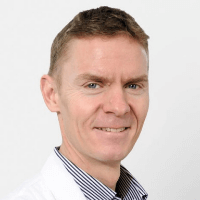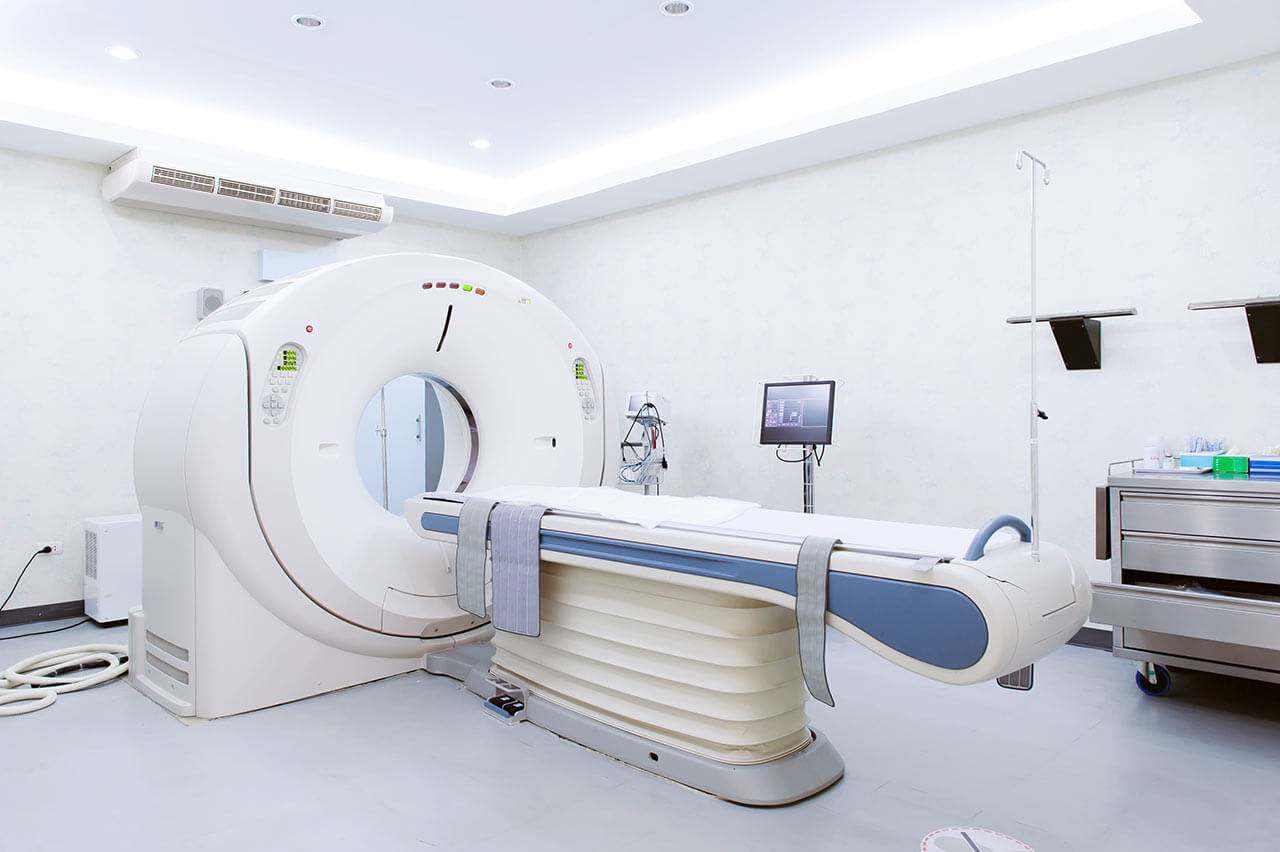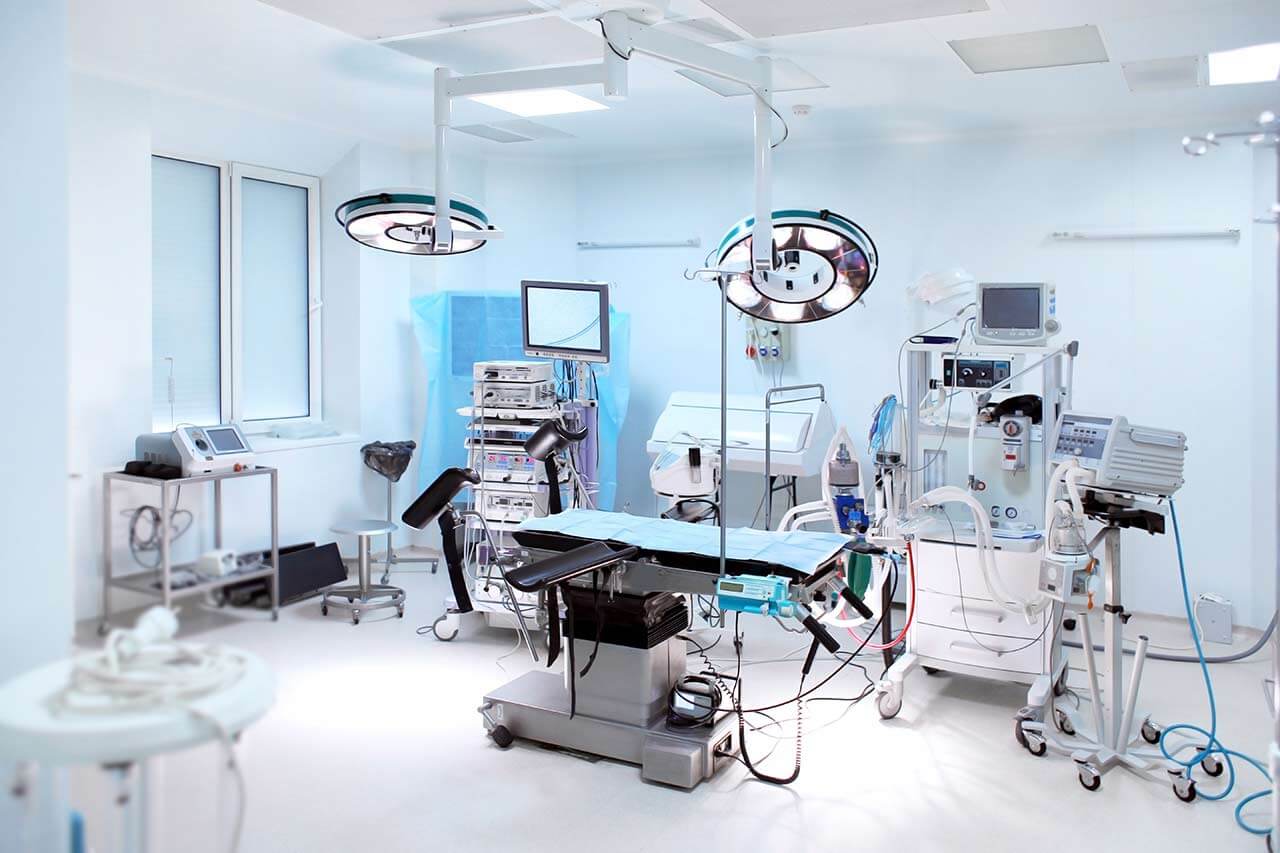
The program includes:
- Initial presentation in the clinic
- clinical history taking
- review of medical records
- physical examination
- laboratory tests:
- complete blood count
- biochemical analysis of blood
- thyroid function test (TSH-basal, fT3, fT4)
- mineral metabolism analysis (Na, K, Ca, Mg)
- lipid metabolism (HDL/LDL, cholesterol, triglycerides,
Lip(a), homocysteine) - iron content (ferritin, iron)
- blood coagulation analysis (aPTT, PT, INR)
- metabolic status (uric acid, total glucose, HbA1c)
- inflammatory parameters (CRP, ESR)
- cardiovascular disease risk markers
- lung function test (Spirometry)
- resting and exercise ECG
- Holter monitoring (24h)
- color doppler echocardiography
- color doppler sonography of cerebral vessels
- preparation according to preoperative standard
- Implantation of cardioverter- defibrillator
- symptomatic treatment
- control examinations
- the cost of essential medicines and materials
- nursing services
- full hospital accommodation
- explanation of future recommendations
- written statement
Required documents
- Medical records
- ECG (if available)
Service
You may also book:
 BookingHealth Price from:
BookingHealth Price from:
About the department
The Department of Cardiology at the Hirslanden Salem-Spital Bern offers the full service range for the diagnostics and treatment of cardiovascular diseases. The highly motivated team of experienced professionals applies all the methods of effective evidence-based medicine for the restoration of heart health. The department is headed by Dr. med. Peter Christian Burger.
The main focus of the department's doctors is on the patient with his individual needs and wishes. The medical facility has progressive medical and technical base for the accurate diagnostics, and also provides the effective interventional treatment of cardiac pathologies.
It is worth noting that the peculiarity of the department is cardiogenetic consultations for patients. If necessary, the special genetic analysis is performed at the University of Geneva. It allows the doctors to assess the risks of cardiovascular diseases and carry out timely prevention of heart lesions, which in some cases can lead to death.
The diagnostic and therapeutic service range of the department includes:
- Diagnostics
- Stress and resting electrocardiography
- Echocardiography, including transthoracic echocardiography, transesophageal echocardiography
- Stress echocardiography (also with a load on a bicycle ergometer, with a drug load of dobutamine)
- 24-hour ECG holter monitoring
- Long-term ECG monitoring (7 days)
- 24-hour blood pressure monitoring
- Monitoring of the functioning of pacemakers and defibrillators (in most cases, using resting ECG)
- Cardiac CT
- Cardiac MRI
- Diagnostics using Reveal® ECG loop recorder
- Coronarography
- Electrophysiological heart examinations, including 3D electrocardiography of the cardiac pathways
- Therapy
- Cardiac resynchronization therapy for heart rhythm disturbances
- Defibrillator implantation for heart rhythm disturbances
- Pacemaker implantation for heart rhythm disturbances
- Radiofrequency ablation for heart rhythm disturbances
- Atrial septal defect and patent foramen ovale closure
- Electrocardiography for the restoration of normal heart rhythm
- Balloon dilatation of coronary artery occlusions
- Cardiological rehabilitation (on an outpatient basis) – the duration of the program is from 6 to 12 weeks; training sessions are held 3 times a week for 1-2 hours
- Other medical services
Curriculum vitae
Clinical Interests
- Non-invasive imaging, including cardiac MRI and tomography examinations of coronary vessels.
- Cardiologist at the Federal Aviation Administration (FOCA).
Professional Career
- 2002 - 2005 Work in the Department of Cardiology at the University Hospital Bern.
- 1999 - 2001 Research Fellow at the Harvard Medical School, Boston.
- 1997 - 1999 Work in the Department of Internal Medicine, University Hospital Zurich.
Higher Education and Postgraduate Training
- 2007 Certificate of Competence in Sports Medicine.
- 2005 Board certification in Cardiology, Swiss Medical Association (FMH).
- 2004 Board certification in Internal Medicine, Swiss Medical Association (FMH).
- 1996 Doctorate in Medicine, University of Zurich.
- 1993 State Medical Examination, University of Zurich.
Memberships in Professional Societies
- Swiss Medical Association (FMH).
- Massachusetts Medical Society.
- Swiss Physiological Society.
Photo of the doctor: (c) Hirslanden AG
About hospital
The Hirslanden Salem-Spital Bern enjoys the status of a modern medical facility, which work is based on the highest medical standards, a humane and respectful attitude towards patients. The history of the health facility began back in 1888, when it functioned with the assistance of the Deaconess Foundation. In 2002, the hospital became part of the well-known Network of Swiss Hirslanden Medical Centers, which diagnose and treat patients in all fields of modern medicine. The Hirslanden Network has 18 clinics across the country. The hospital has 163 beds for the hospitalization of patients. The medical complex also includes 7 high-tech operating rooms and 4 excellently equipped delivery rooms.
The hospital’s key areas of specialization are orthopedics and traumatology, spinal surgery, gynecology and obstetrics.
The quality of medical services is monitored through an effective quality management system. Since 2010, the hospital regularly openly publishes all indicators of clinical activities, which helps to increase patient confidence.
The hospital is located in the central and at the same time quiet part of the beautiful Swiss city of Bern. The windows of the patient's rooms overlook the beautiful views of the Old City and fascinating alpine landscapes. The medical institution is also proud of its own spacious garden where one can stroll along the pond, relax and gain strength. All these details, combined with the excellent quality of medical service, guarantee the best treatment results and comfort.
Photo: (с) depositphotos
Accommodation in hospital
Patients rooms
The patients of the Hirslanden Salem-Spital Bern live in comfortable rooms made in a modern design. Each patient room has an ensuite bathroom with shower and toilet. The standard patient room includes an automatically adjustable bed, a bedside table, a table, a chair, an armchair, a TV and a telephone. If desired, one can connect to Wi-Fi. The hospital also offers accommodation in the enhanced-comfort patient wards, which are additionally equipped with a safe, a refrigerator and upholstered furniture.
Meals and Menus
The patient and the accompanying person are offered a daily choice of three menus. If you are on a specific diet for any reason, you will be offered an individual menu. Please inform the medical staff about your dietary preferences prior to the treatment.
Further details
Standard rooms include:
Religion
The religious services can be provided upon request.
Accompanying person
During the inpatient program, an accompanying person may stay with the patient in the room or at a hotel. Our managers will help you choose the most suitable option.
Hotel
During the outpatient program, the patient may stay at the hotel. Our managers will help you choose the most suitable option.




